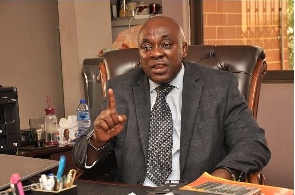A comprehensive debt management strategy to check against government’s excessive borrowing on the domestic capital market has been given a seal of approval by cabinet, Deputy Finance Minister Mona Quartey has disclosed.
Speaking at this year’s Ghana Economic Forum organised by the Business and Financial Times, Ms. Quartey said the medium-term strategy will help further deepen the domestic debt market and contribute to reducing refinancing and exchange rate risks while securing a more stable source of financing.
For the first half of this year, government plans to raise more than GH¢25 billion on the domestic market alone; a figure which is twice what it borrowed within the same period last year. The excessive borrowing, analysts have said, crowds out businesses requiring essential capital injection.
According to Ms. Quartey, the strategy which is being prepared by the Finance Ministry, will address the crowding-out effect and other market risk posed by government’s borrowing.
The rate on government’s 91-Day T-bills rate is currently pegged above 25 percent which most banks find risk-free and as such tend to lend ‘risky’ business owners at a more expensive rate generally above 30 percent.
This deficit financing by government at expensive interest rates has a crowding-out effect on the private sector’s ability to borrow at affordable interest rates.
“Clearly, these [high interest rates] detract from private-sector growth and profitability, and will keep the economy below its potential growth level over the medium-term,” an Association of Ghana Industry’s official lamented.
But Ms Quartey further stated that “government is strengthening its risk management practice by developing an operational framework for building cash buffers, strengthening the management of the on-lending portfolio, and reducing the exposure to the contingent liabilities.”
The Deputy Minister who was speaking on the theme for this year’s Ghana Economic Forum, “Ghanaian-owned economy: Setting the agenda for achieving it,” said government’s “overarching goal is to frontload fiscal adjustment to restore macroeconomic and debt sustainability, rebuild external buffer and eliminate fiscal dominance of monetary policy, while safeguarding financial sector stability.”
She assured business owners and chieftains of industry who had gathered at the opening of this year’s forum that maintaining broad macroeconomic stability is critical towards achieving government goal of creating an environment for businesses and investments.
The country’s medium-term economic prospects, she said, remains robust, supported by potential for further oil and gas exploration and production including the coming on stream of TEN fields and the Sankofa field.
This year’s GEF 2015 was supported by Access Bank, Ghana National Petroleum Corporation (GNPC), Ghana Investment Promotion Center, GOIL and host of other companies.













